News
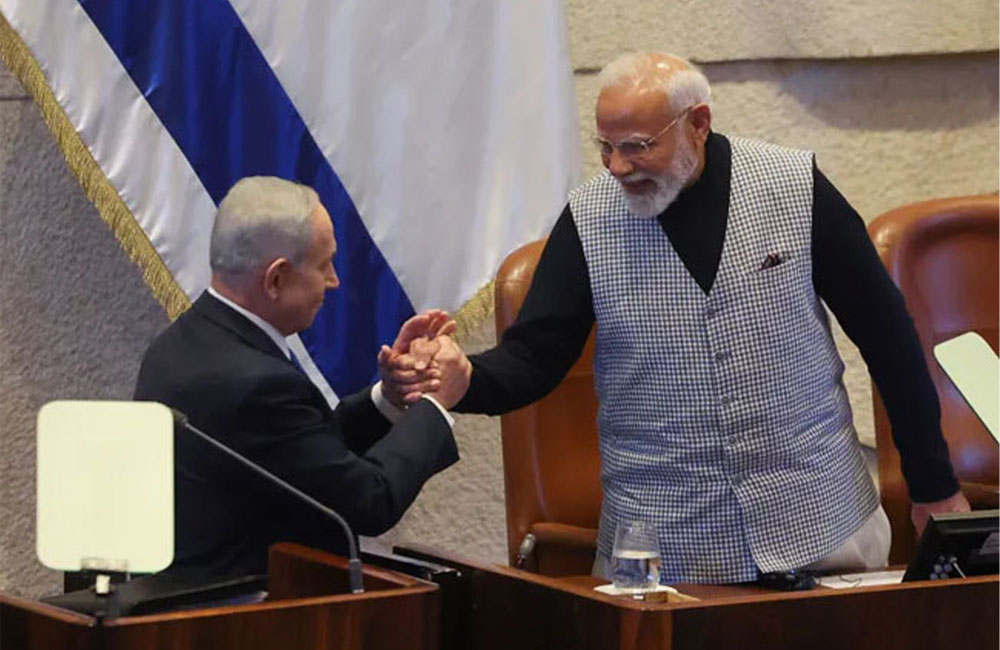
“India Gateway To Asia”: Israel prepares free trade agreement with Delhi
As Prime Minister Narendra Modi began his two-day visit to Israel, Israeli Economy and Industry Minister Nir Barkat struck an upbeat, candid note in an exclusive interview with NDTV, calling India “a gateway to Asia” and predicting that a long-awaited India-Israel Free Trade Agreement could be clinched sooner than expected.
“Oh, it’s really exciting. All of Israel, we love India. We love the Indian people. We love the people-to-people relationship,” Barkat said, underscoring the warmth that has come to define ties between the two democracies.
He pointed to the personal rapport between Prime Minister Modi and Israeli Prime Minister Benjamin Netanyahu as a force multiplier. “The fact that Prime Minister Netanyahu and Prime Minister Modi get along so well--that matters,” he said.
Fast-Tracking The FTA
On the trade front, Barkat revealed that negotiations are firmly on the “fast track.” “We have a mission from Israel in India negotiating the free trade agreement between us,” he said, adding that momentum picked up after India’s Commerce and Industry Minister Piyush Goyal visited Israel late last year.
“We really understood that we want to move on the fast track...We want to make something significant as soon as this year. And I believe it’s possible.”
Pressed on timelines amid India’s expanding trade footprint--from interim arrangements with the US to deals with the UK, New Zealand and Oman--Barkat remained optimistic. “Hopefully so,” he said of a 2026 target, before adding with a smile, “This puzzle thing is possible.”
Why India Matters To Israel
Asked why India’s economy is so critical for Israel, Barkat framed the relationship as deeply complementary. “What we do--we’re innovative, we have new ideas, cutting-edge technology--but we’re 10 million people,” he said. “So it’s difficult for us to scale to the magnitude that India knows how to do.”
India’s size and trajectory, he argued, complete the picture. “India today is becoming the third largest economy... 1.4 billion people. We view India as a gateway to Asia--that’s 59 per cent of the world population.”
“We are out-of-the-box thinkers, but we need to get in the box, right? And India is the box,” he added.
IMEC: Beyond A Corridor
The India-Middle East-Europe Economic Corridor (IMEC), announced at the G20 and stalled by regional conflict, also featured prominently.
With a ceasefire holding, Barkat said the vision could now move from concept to execution. “First of all, it’s a beautiful vision. And I believe now that there’s an opportunity to fulfil that vision.”
IMEC, he stressed, is “not just a corridor...It’s for energy, for information and data, transportation--way over and beyond just a little corridor.” Israel, he said, is planning its gateways--from the Haifa port toward Europe and eastern links toward Jordan and Iraq--while acknowledging that “additional steps with the Saudis and Iraq” will be needed.
Haifa, Adani And Infrastructure
On Indian investment in Israel, Barkat welcomed the Adani Group’s stewardship of the Haifa port. “Adani was very smart. We know that they own a lot of the ports in India.
Now he owns one of the ports that we have in Haifa,” he said. “We’re here to help them succeed,” Barkat added, signalling openness to more Indian bids in Israeli infrastructure. “I’m committed to helping Indian companies succeed in Israel.”
‘Tough Negotiators’ And Ancient Ties
The minister shared a lighter moment about negotiating styles. Calling Goyal “tough on the outside, but really soft on the inside,” Barkat said the two sides have “cracked how to make this work together.”
He also invoked shared civilisational roots. “We’re two ancient people--thousands of years of history... We’re also challenged by terror. We’re so alike in many, many ways.”
Make In India--And Defence
On manufacturing and defence cooperation, Barkat was clear that scale dictates strategy. “You’re 150 times larger than Israel. We cannot produce large products and ship them to India.
It doesn’t make sense,” he said, advocating joint ventures and local production. “If you’ve got big products to market, then it makes sense to go and make in India.”
Asked directly about defence cooperation and the possibility of manufacturing systems like Iron Dome in India, Barkat was careful but open. “There are talks all across all sectors -- defence, economy, culture, friendship,” he said. “If you’re talking about a huge amount of products, then yes, it makes sense to have production in India.”
Summing up Israel’s priorities, Barkat said, “Side by side with what we’re doing with the Americans, my highest priority is making sure that Piyush Goyal and Prime Minister Modi are happy with the relationship with Israel.”
As Prime Minister Modi’s visit approaches, the message from Jerusalem is clear: India is not just a partner, but a central pillar in Israel’s economic and strategic future.
Source:Adaderana.lk
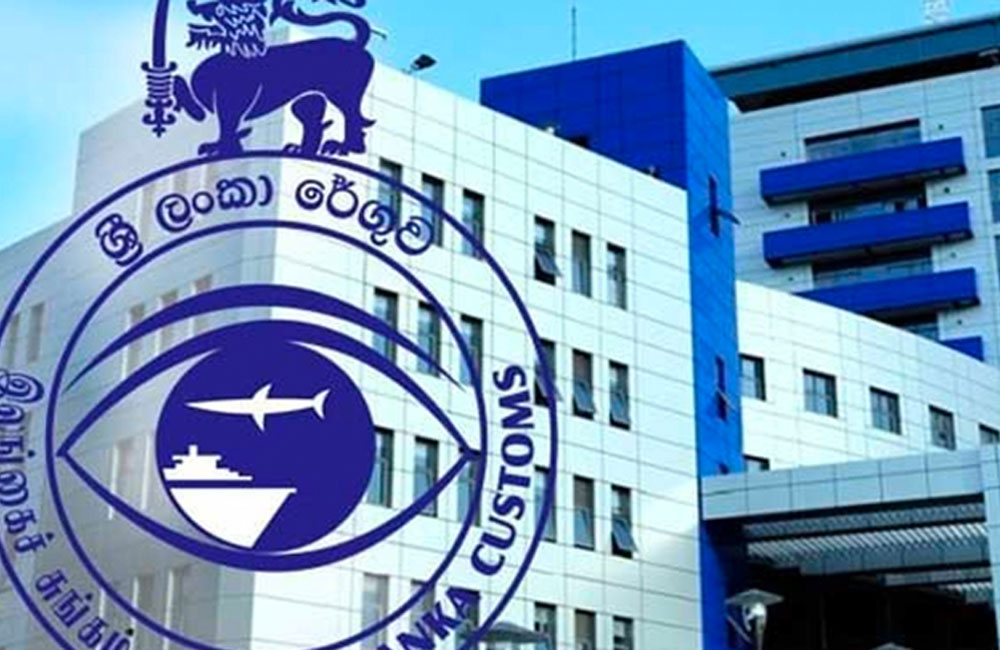
Customs Unions Continue Black Armband Protest Pending Finance Ministry Talks
The Customs Trade Union Alliance has confirmed that its ongoing black armband protest will continue today (26), as discussions with authorities are scheduled to address their outstanding concerns.
Union representatives stated that the future course of trade union action will depend on the outcome of a meeting planned for today with the Deputy Minister of Finance. They noted that the protest could be escalated if their demands remain unresolved.
Vice President of the Customs Officers’ Association, Geethanjana Madapatha, confirmed that customs officers will continue wearing black armbands while carrying out their official duties. He added that this form of protest, which began on February 24, remains in effect across customs offices.
The trade union action was launched to draw attention to long-standing issues raised by customs officers, with unions now awaiting the outcome of discussions with the Finance Ministry before deciding on their next steps.
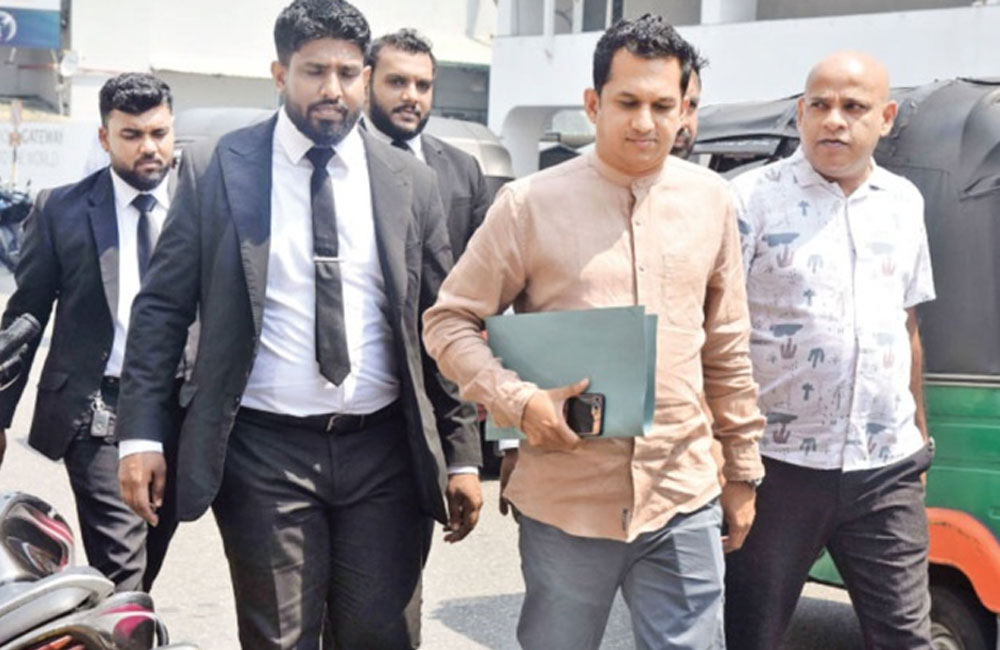
CID complaint filed over alleged false coal report
Chairman of the ‘Magen Ratata’ movement, Sanjaya Mahawatta, has submitted a complaint to the Criminal Investigation Department (CID) requesting an immediate investigation against individuals who presented false information regarding the recent coal incident.
According to the state newspaper Dinamina, he has requested that an immediate investigation be conducted and the law be enforced against the relevant individuals.
The complaint was filed yesterday (25) against two opposition Members of Parliament and a professor.
Sanjaya Mahawatta alleged that presenting a report prepared in 2017 with the date altered to 2025 is a serious offence.
After submitting the complaint to the CID, he expressed to the media that this is an attempt to embarrass the government and the state and to set the country on fire.
Therefore, he requested that the three individuals named in the complaint be summoned immediately and statements be recorded.
The complaint further states that the altered documents should be examined, and if found suspicious, the law should be enforced without delay.
He said that deliberately changing the date is a serious offence, and that Members of Parliament should not misuse parliamentary privileges to make false statements.
Sanjaya Mahawatta added that, instead, they should come outside Parliament and present this information to the public.
(Source:Newswire)
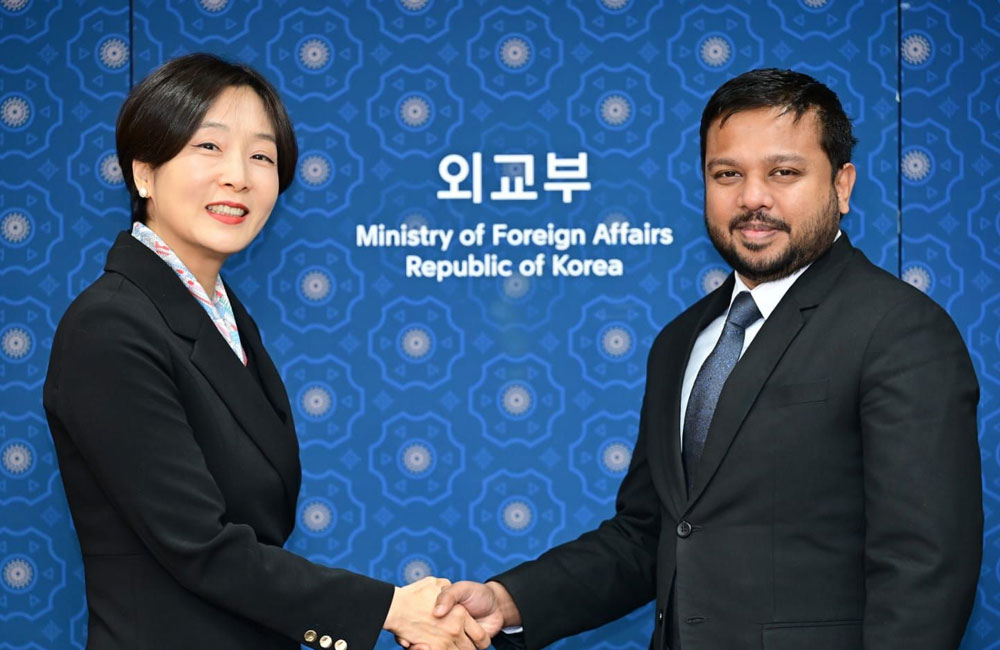
Sri Lanka and South Korea Hold Talks to Expand Economic and Diplomatic Cooperation
Deputy Minister of Foreign Affairs Arun Hemachandra held bilateral talks with Eui-hae Cecilia Chung, Deputy Minister of Foreign Affairs of the Republic of Korea, during an official meeting at the Korean Foreign Ministry in Seoul.
The discussions focused on strengthening cooperation across several key sectors, including trade and investment, foreign employment opportunities for Sri Lankan workers, development assistance, and defence collaboration. Both parties also reviewed Sri Lanka’s ongoing economic recovery process, including recent progress in debt restructuring efforts.
In a statement shared on Facebook, Hemachandra expressed Sri Lanka’s gratitude for South Korea’s timely assistance following Cyclone Ditwah. He also sought continued support under the government’s “Rebuilding Sri Lanka” programme aimed at accelerating national recovery and development.
The Deputy Minister further highlighted the growing cultural connections between the two nations, noting the increasing popularity of Korean culture among Sri Lankan youth and its role in enhancing people-to-people ties.
With Sri Lanka and South Korea set to celebrate 50 years of diplomatic relations next year, both sides agreed to commemorate the milestone through meaningful initiatives, including high-level exchanges and deeper institutional engagement.
The meeting concluded with both countries reaffirming their shared commitment to further enhancing bilateral relations and cooperation in the years ahead.
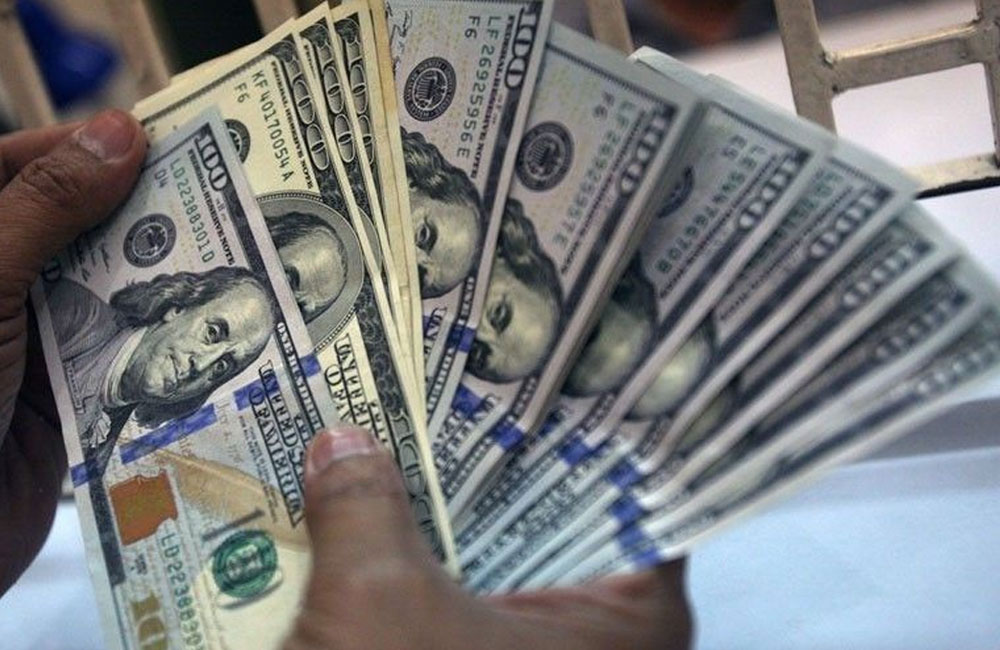
Sri Lankan Rupee holds firm against US Dollar across commercial banks
The Sri Lankan Rupee remained largely stable against the US Dollar on Thursday (February 26), with several commercial banks reporting no significant changes in exchange rates compared to the previous day. The general selling rate across the banking sector continued to hover around Rs. 312.
According to Seylan Bank, the buying and selling rates for the US Dollar were unchanged at Rs. 306.60 and Rs. 311.35, respectively.
Similarly, NDB Bank maintained its buying rate at Rs. 306.15 and its selling rate at Rs. 312.65, with no revisions reported.
Meanwhile, People’s Bank recorded a slight increase, with the buying rate rising from Rs. 305.69 to Rs. 305.74, and the selling rate edging up from Rs. 312.43 to Rs. 312.48.
At Commercial Bank, exchange rates remained unchanged, with the US Dollar buying rate at Rs. 304.11 and the selling rate at Rs. 312.50.
Likewise, Sampath Bank reported no changes, maintaining the buying rate at Rs. 306 and the selling rate at Rs. 312.50.
Overall, the Rupee continued to demonstrate stability in the foreign exchange market, with only marginal adjustments observed at select institutions.

Australian Tourist Drowns While Swimming at Pelena Beach in Weligama
A foreign tourist from Australia has died after drowning while swimming off Pelena Beach in Weligama, authorities confirmed.
According to Sri Lanka Police, the incident took place yesterday (25) when the 76-year-old man had entered the sea with his wife. He was later reported missing, triggering an emergency response and search operation.
Police officers from Weligama initiated an investigation after receiving information about the disappearance. Preliminary findings indicate that the elderly tourist had drowned while bathing in the sea.
Further investigations are currently underway to determine the full circumstances surrounding the incident.
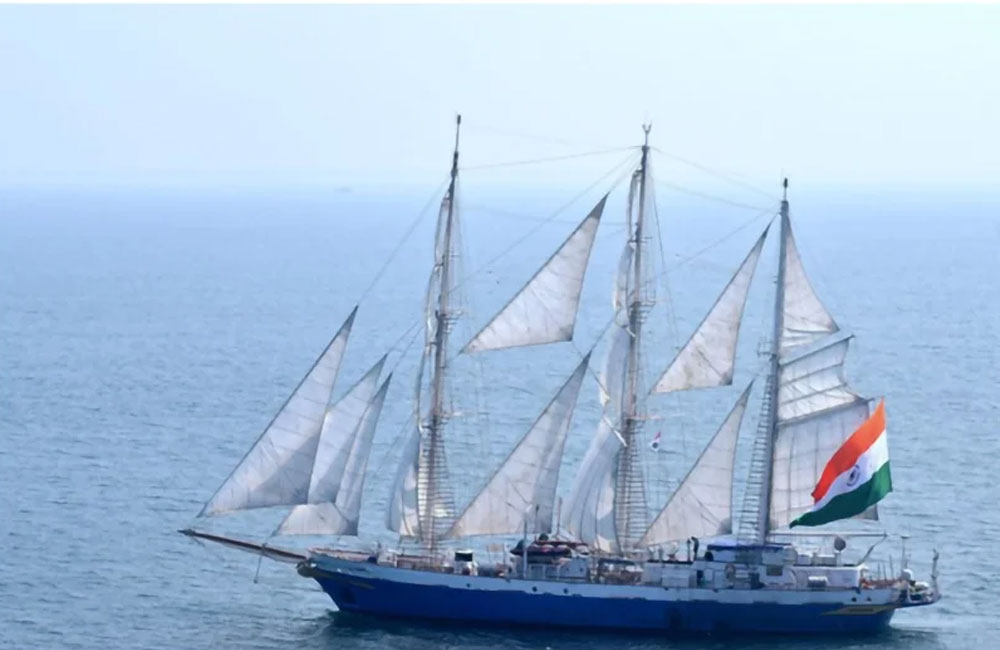
Indian Navy training ship INS Tarangini to visit Trincomalee and Colombo for joint naval training
The Indian Navy’s sail training vessel INS Tarangini is set to arrive in Trincomalee on February 27, where it will remain until March 2, before proceeding to Colombo for a second port call from March 6 to March 9.
According to the High Commission of India in Colombo, the visit is intended to provide practical ocean sailing training to trainee officers of the Sri Lanka Navy. The programme will include both harbour-based instruction and open-sea training to enhance their maritime skills and operational exposure.
INS Tarangini, commanded by Commander Nitin Gajjar, is currently on its return journey from Visakhapatnam after participating in the International Fleet Review 2026.
As part of the Trincomalee visit, three Sri Lanka Navy officers and 25 trainee officers will board the vessel to undergo ocean sailing training during its voyage to Colombo. This hands-on experience is expected to strengthen their seamanship and deepen professional collaboration between the two navies.
The Indian Navy remains among the few naval forces globally that continue to operate dedicated sail training ships, preserving traditional sailing skills alongside modern naval technologies.
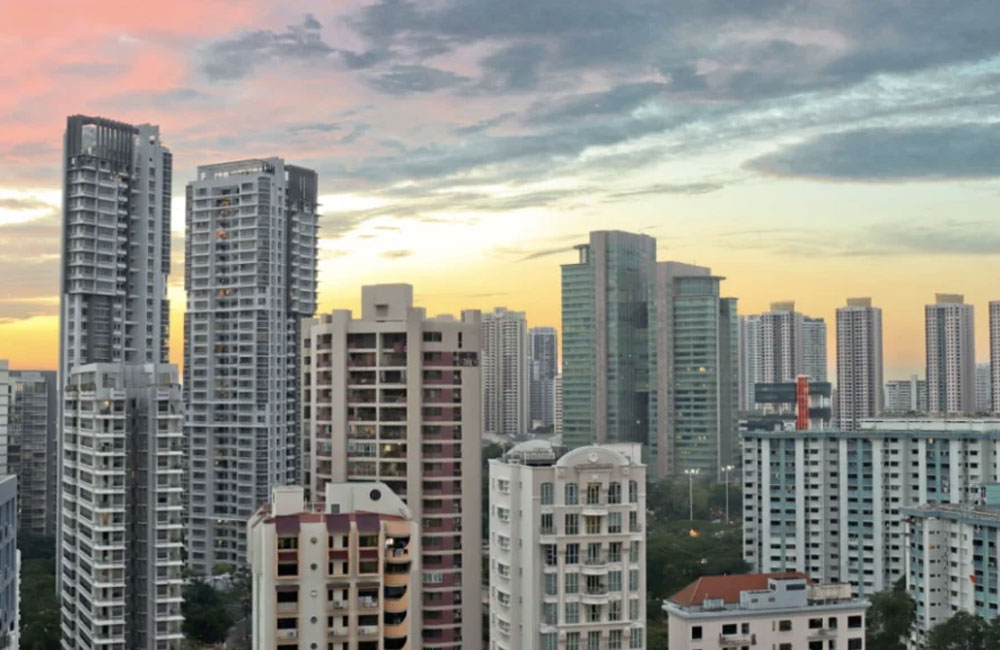
Colombo Land Prices Surge as Residential Property Values Jump Over 12%
Land values in the Colombo District recorded significant growth during the latter half of 2025, with residential land prices rising by 12.4 percent compared to the same period in 2024, according to the Central Bank of Sri Lanka.
Commercial land prices also experienced notable growth, increasing by 11.3 percent year-on-year, while industrial land values saw a comparatively moderate rise of 8.0 percent.
Reflecting this overall upward trend, the Land Valuation Indicator (LVI) for Colombo District climbed by 10.6 percent in the second half of 2025 compared to the corresponding period of the previous year. The Central Bank noted that all major components of the indicator—including residential, commercial, and industrial categories—contributed to the increase.
In addition to the annual growth, land values also recorded gradual increases compared to the first half of 2025. Among the three categories, residential and commercial land indicators showed stronger gains during this six-month period.
The continued rise in land prices highlights sustained demand and ongoing momentum in Colombo’s property market, particularly in residential and commercial sectors.

Rising Colon and Rectal Cancer Cases Among Younger Adults Raise Alarm in Sri Lanka
Health authorities in Sri Lanka have expressed concern over an increase in colon and rectal cancer diagnoses among individuals between the ages of 30 and 50, highlighting a worrying change from previous patterns.
Medical experts noted that these types of cancers were traditionally more prevalent among people aged over 50. However, recent statistics show a rising number of younger adults being affected, reflecting a trend also observed in other parts of the world.
Speaking at a media briefing held at the Health Promotion Bureau, Dr. Hasarali Fernando, Consultant Community Physician at the National Cancer Control Programme, described the development as a serious public health issue.
She emphasized the importance of early detection through regular screening and timely medical consultation. Dr. Fernando also urged the public to remain alert to warning signs and seek professional medical advice without delay, noting that increased awareness and prompt diagnosis are key to reducing the impact of the disease.
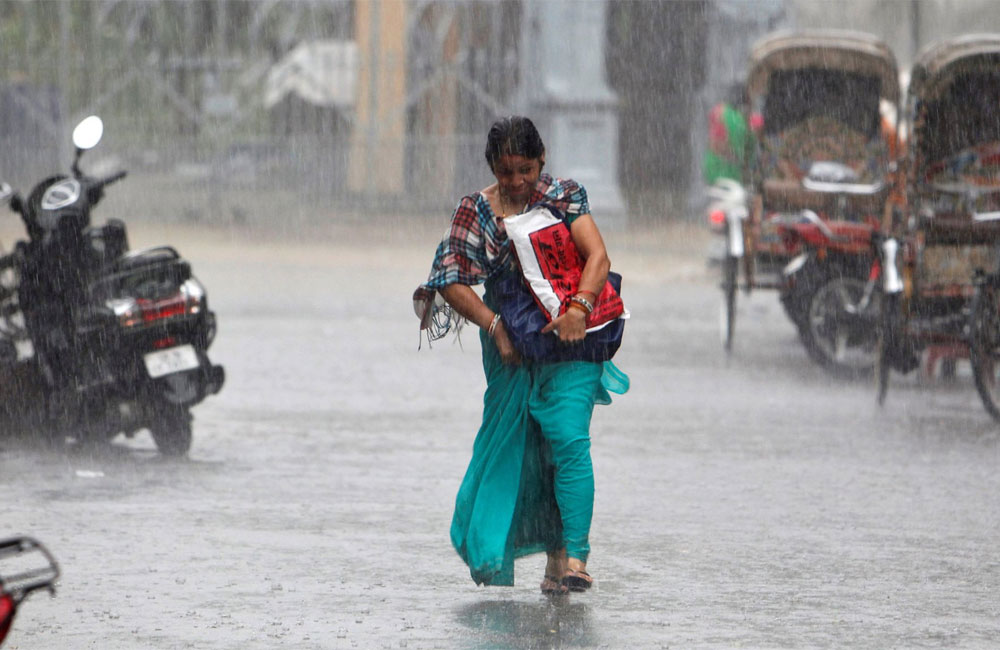
Afternoon Showers Expected in Southern and Several Inland Areas
The Department of Meteorology says isolated showers or thundershowers are likely in parts of the Southern Province, as well as the Ratnapura and Monaragala districts, particularly after 2.00 p.m. today.
Apart from these areas, much of the country is expected to experience mostly fair weather conditions throughout the day.
Meanwhile, light morning showers may occur in coastal regions of the Western Province, bringing brief rainfall to those areas during the early hours.
Misty conditions are also forecast in several parts of the island during the morning, including the Central, Sabaragamuwa, Western, Northwestern and North-central provinces. Similar conditions may affect districts such as Galle, Matara, Monaragala, Mannar and Vavuniya.
Authorities advise the public to remain aware of changing weather conditions, especially in areas prone to afternoon thundershowers.
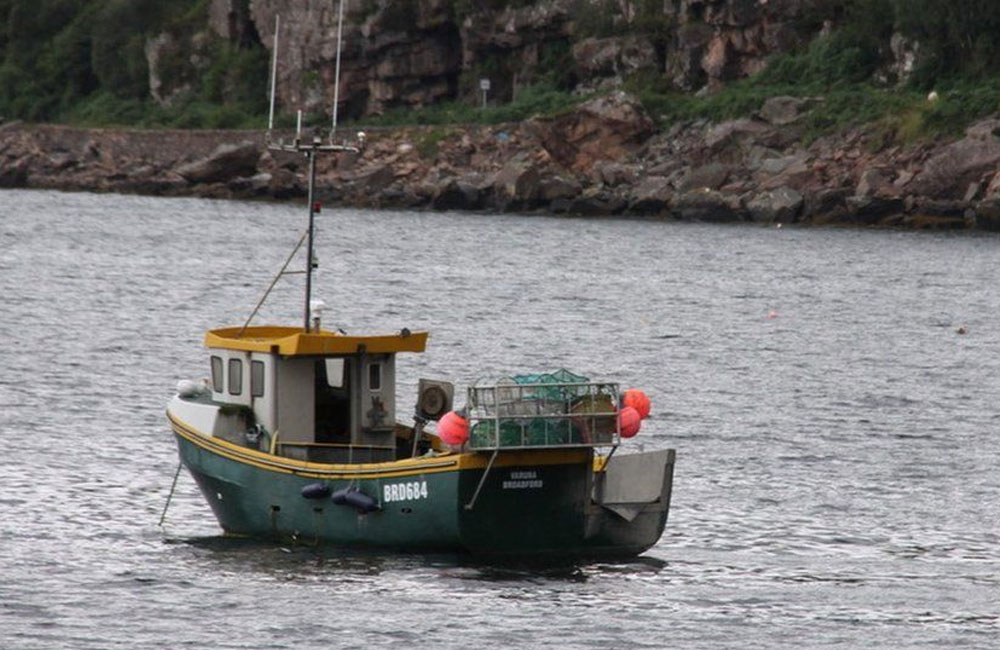
Body of Young Woman Found in Abandoned Boat at Ratmalana Beach
An investigation has been launched by Sri Lanka Police after the body of a young woman was discovered inside an abandoned fishing vessel along the coast of Ratmalana yesterday (25).
According to Mount Lavinia Police, officers began inquiries after receiving information that a woman’s body had been left inside a fishing boat in the area.
The deceased has been identified as a 24-year-old resident of Ratmalana. Preliminary investigations have indicated that the death is suspicious, prompting a full inquiry by authorities.
Police said further investigations are continuing to establish the exact cause of death and the events leading up to the incident.

Mexico weighs legal action after Elon Musk links president to drug cartels
Mexican President Claudia Sheinbaum has stated that she is considering legal action following a comment by tech billionaire Elon Musk, the world’s richest man, that alleged she was connected to drug cartels.
Musk’s post on X followed the capture and killing of Jalisco New Generation Cartel (CJNG) leader Nemesio Oseguera, “El Mencho,” by Mexican security forces.
In the post, Musk responded to a 2025 video of Sheinbaum discussing cartel violence and alleged that she was “saying what her cartel bosses tell her to say.” He did not provide further evidence.
“We are considering whether to take legal action,” Sheinbaum said during her daily morning press conference, adding that government lawyers are reviewing the matter.
STRONG FREE SPEECH PROTECTIONS
Sheinbaum could face difficulty suing Musk for defamation in the U.S. because of strong legal protections for free speech. To prevail in a defamation case against Musk in the U.S., Sheinbaum would need to prove Musk knowingly said something false about her or recklessly disregarded the truth when he said it.
Tesla, Musk’s auto company, did not immediately reply to a request for comment on Sheinbaum’s remarks.
In the 2025 video, Sheinbaum said a return to a “war on drugs” was not feasible.
“Returning to the war on drugs is not an option ... it is outside the framework of the law,” she said.
The military offensive on cartels led by former President Felipe Calderon in 2006 led to bloody turf battles as gangs splintered, triggering a spiral of violence that many analysts see as a contributing cause to still-high homicide rates.
Sheinbaum said she expected security to continue to normalize in Mexico after cartel members coordinated a series of roadblocks and arson attacks after the government’s Sunday operation against Oseguera.
Asked if the operation marked a return to a more violent security stance, Sheinbaum said this would never be the case.
“The detention of a suspected criminal with an arrest warrant can generate this type of circumstance, but we are looking for peace, not war,” she said.
Ruling MORENA Party president Luisa Alcalde also reacted to the post on social media, saying Musk should use his platform and X social media network to fight drug consumption, addiction, disinformation and stop the promotion of narco culture.
“Wealth does not give moral authority,” she said. “The lives that are lost in this fight, often fueled by consumption in other countries, are worth infinitely more than any fortune amassed in Silicon Valley.”
Over 130,000 people are missing in Mexico, where much of the country’s violence is linked to drug cartels that sell products to and obtain firearms from the United States.
Source:adaderana.lk
Page 3 of 681